TMT Day 8 - A Visit to Hook Norton Brewery
Visiting a regional brewery with a few tied houses.
After talking to Stroud Brewery, a relatively new upstart in the craft beer movement in England, I was curious to talk to an older, more entrenched brewer, specifically one with tied pubs. After some asking around, I contacted the folks at Hook Norton Brewery, which has been brewing beer in the Cotswolds since 1849.
It's probably not too surprising that my conversation with the Hook Norton team immediately felt more corporate, especially relative to the previous day’s chat with Stroud Brewery. The whole brewery feels more like a museum than an actual brewery - they have a visitor center, a gift shop, organized tours, and the whole lot.
I'm not necessarily one for brewery tours these days. I've seen a few too many for them to be mildly interesting. But I'll admit, Hook Norton was pretty fascinating. They're one of the few "tower breweries" still around, a style built in the late Victorian era that uses gravity when possible to facilitate the flow of beer production. Much of their equipment is as original as possible, dating back to the late 1800s or early 1900s, and still in use to this day. You can see some pictures at the end.
Most of my time was spent with Mark Turner from their corporate marketing team. The conversation spanned a few topics, including, of course, pubs. From their perspective, the two biggest factors pubs are shutting down are 1) cost and 2) consumption patterns.
It's probably not surprising that the general cost of running a pub, hell, living on this planet, has gotten incredibly expensive over the past few years. Particularly in the U.K., energy costs have soared in recent years. In many ways, you can see the cost of living crisis in the U.K. reflected in the cost of a pint.
Or, with more context, you can see the amount of pints you can buy with a week’s wage:
Side note: I really feel like we should all track the beer-to-wage index, don’t you? It just makes sense.
Some of the price increases can be attributed to the increased raw material and energy prices. When we later talked to the head brewer from Hook Norton, he detailed some ways they’ve adjusted their work to accommodate rising costs, like turning on their boiler a few hours earlier when energy prices are marginally lower.
In theory, practices like these could help keep the brewery's costs down and, in turn, the cost for the consumer. But most people don’t think about the inherent cost of making beer. They feel the cost of the pint at the pub, which doesn’t tell the whole story.
As one tied-house publican told us a few days ago, they're often required to buy beer from the breweries at nearly twice the market rate. Hook Norton even corroborated that, saying they charge their tied pubs ~67% more for their beer (based on rough, top-of-head figures). And neither of the people we talked to could give a compelling reason. The only hypothesis was because of tradition and the maintenance of the pub’s property. But isn't the maintenance cost ostensibly offset by the publican’s rent and the asset appreciation of the land itself?
And Mark was eager, almost too eager, to say how their tied pubs have to buy their beer. And to ensure they do, they'll tag their beer and have their delivery drivers check for untagged casks or kegs down in their cellars.
There's still an obvious question: why would you still force your pubs to buy beer at such a high surcharge when competition, like the Wetherspoons, are popping up around the corner and serving your beer at a lower cost? Well, I'd bet if you have 32 tied pubs buying $70,000 of beer per year from you, you're getting a nice, consistent revenue stream that helps insulate you from other market forces.
To be fair to Hook Norton, they are a relatively small regional brewer in the Cotswolds, with only 32 tied pubs - hardly some big, evil corporate entity. They’re a family-run business and, from what I can tell, full of good people making good beer. I'd imagine their relationship with their tied pubs is vastly different than the likes of Greene King, a brewery that owns ~2,900 pubs as of 2020.
But at the end of the day, it's still a business.
The other factor of pub closures is consumption patterns. This is, of course, an undeniable part of why many pubs are closing. Folks no longer live in 1800s Victorian England when beer is cleaner than water, they don't travel through the countryside on horse and buggy, and they don't take lunch breaks to down a few pints at the local pub. As cities and villages evolve, pubs will inevitably close.
But it still feels that those closures are unfairly levied on small, tied pubs, which tend to be the pubs with the most history. The type of pubs that, especially as Americans, we dream up in our heads.
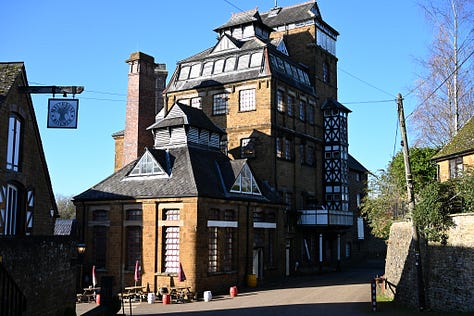
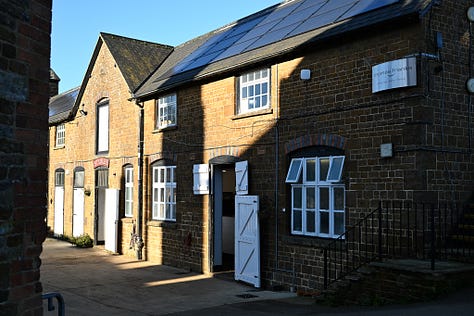

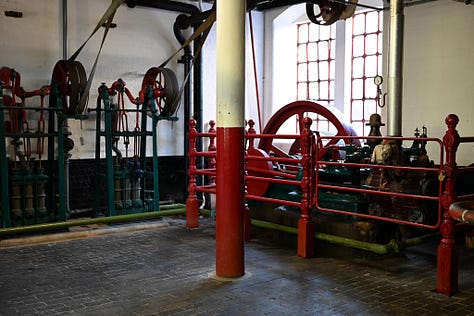
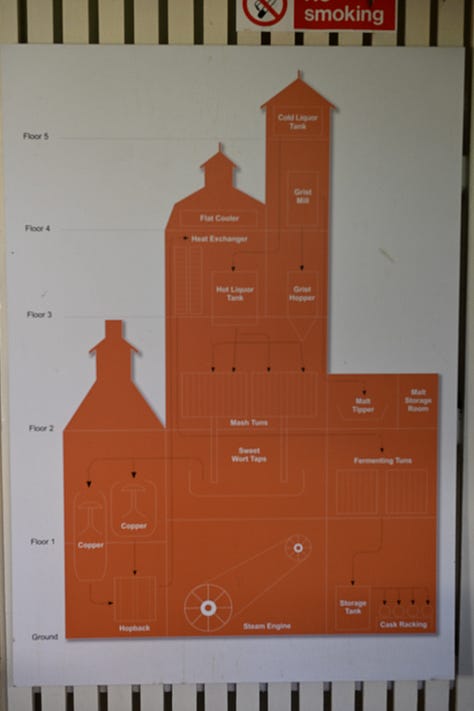

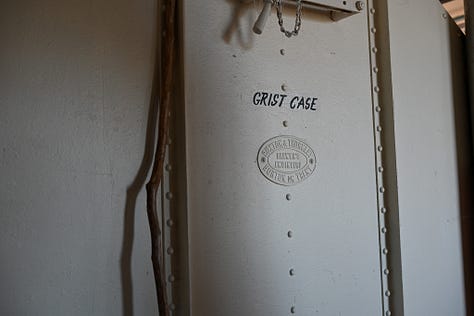
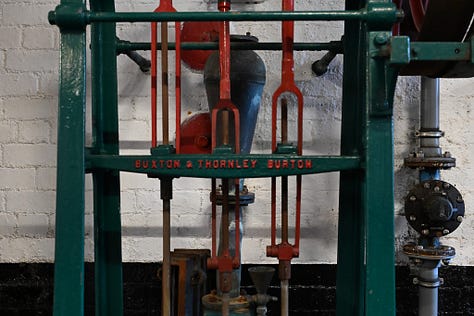
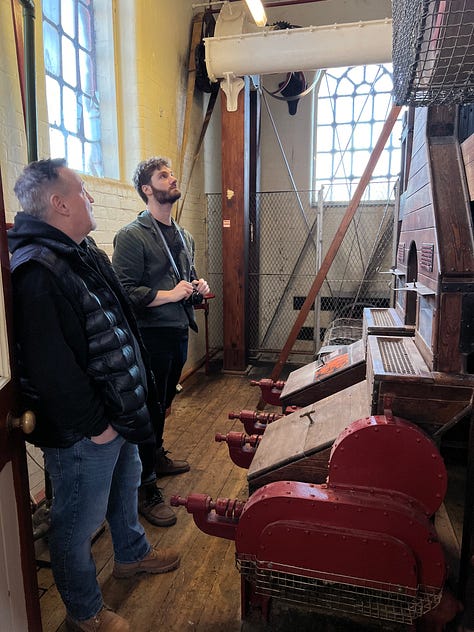
Next up, I find the greatest pub in the world.
-Skylar
Pub Tracker
London
Ye Old Mitre ($7.69)
Ye Cheshire Cheese ($7.51)
The Liberty Bounds - JD Wetherspoon (Beer + Burger $12.65)
The Eagle Ale House (TBD)
Exmouth Arms ($7.60)
The Carlton Tavern ($6.60)
Chesham Arms ($7.73)
Bristol
The Open Arms ($5.74)
Highbury Vaults ($6.73)
Small Bar ($6.13)
Cotswolds
The Porch House ($6.16)
Stroud Brewery ($6.16 - two half pints)
The Bell - Morten ($6.96)
The Fox ($7.08)
The Kings Head ($7.09)



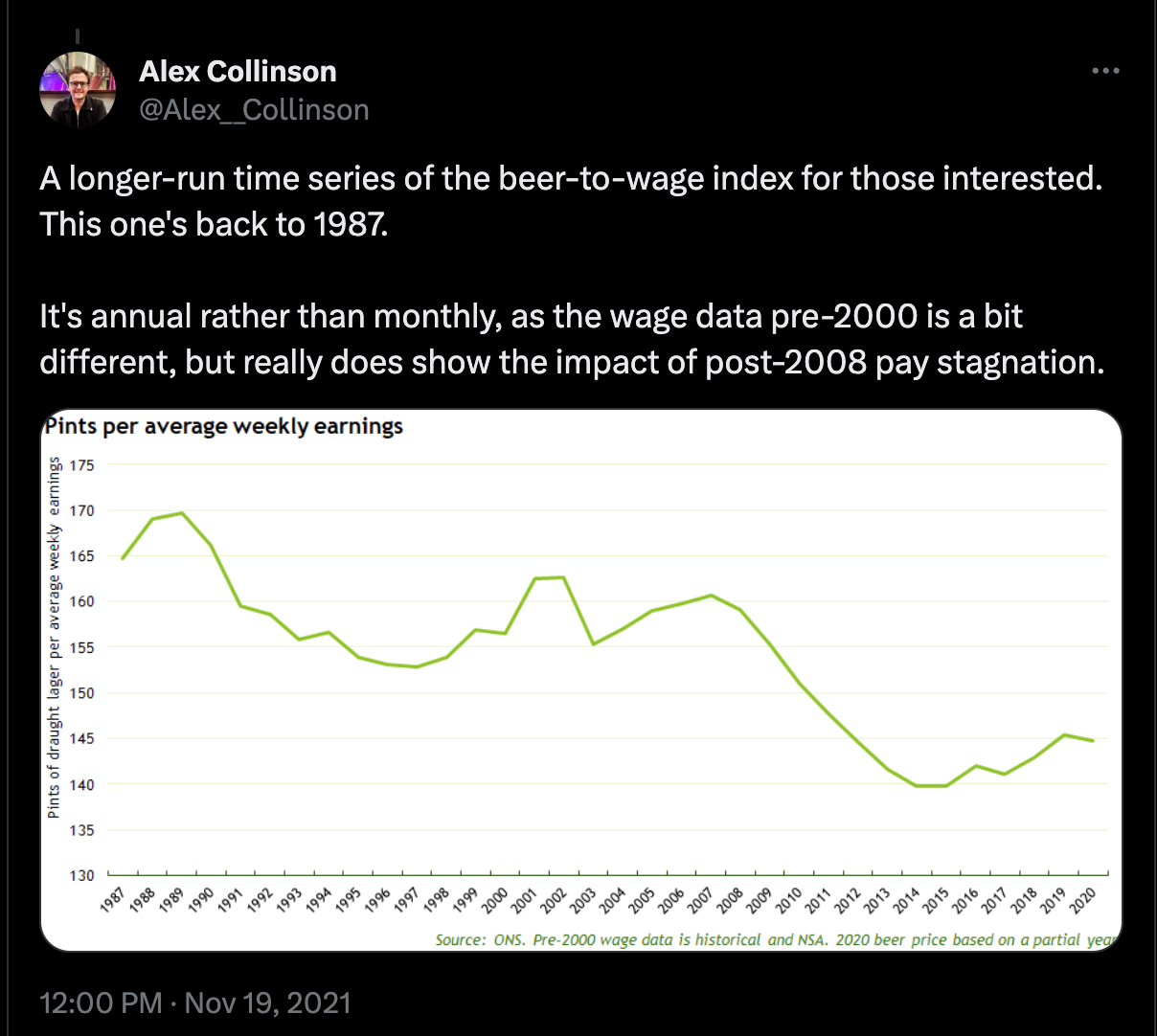
Great looking pub building. How does the food compare in tied vs untied pubs- any difference? Do you have a favorite beer from any of these pubs?
We found much better food than we expected in London's pubs in 2013. I especially loved the meat pies .